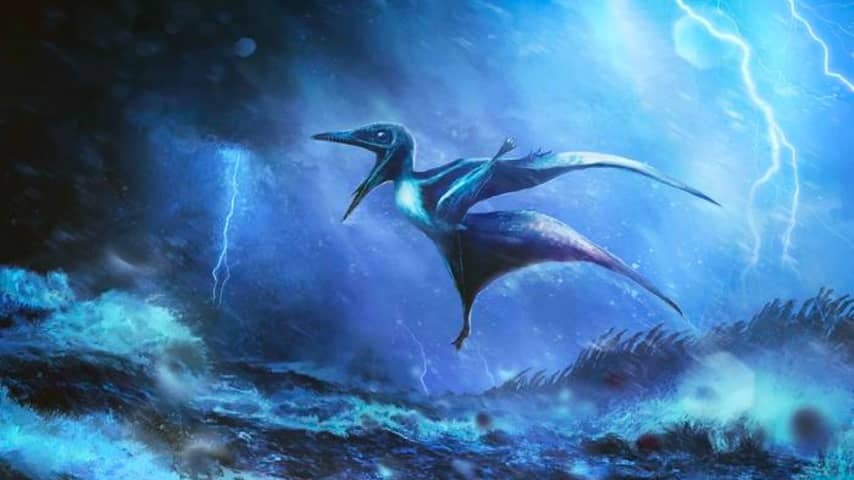
Scientists Now Know the Cause of Death Of Two Flying Baby Dinosaurs That Lived on Earth About 150 Million Years ago. Their research indicates that the animals were killed by a tropical storm.
Researchers from the University of Leicester Studied Two Young Pterosaurs. These relatively small flying dinosaurs with hollow, thin bones lived 150 million years ago. Their Light Construction Made Them Excellent Fliers.
The Fossils of the Two Studied Dinosaurs, Named Lucky and Lucky II, Are Almost Intact. There is one notable exception: Both Animals Have Unusual Injuries to Their Wings. Accordance to the researchers, it is if they were twisted by a strong gust of wind.
The Researchers conclude that the baby dinosaurs may have bone blown away in a tropical storm and ended up in a lake (which has since three up). Their findings are published in The Scientific Journal Current Biology . Lucky and Lucky II Were Probable Only only a few days old when they died.
It is exceptional that the fossils of these two young dinosaurs have so well preserved. Fossils of Large, Massive Animals Are Usual Best Preserved. As a result, museums are now full of large, imposing skeletons or extinct dinosaurs.
Small Dinosaurs Were More Vulnerable to Strong Winds
But in the Limestone around the South German Town of Solnhofen, Several Fossils or narrower Dinosaur’s have Been Excellently Preserved. That is also where lucky and lucky II were found, as well as hundreds or other fossils or small pterosaurs.
Strikingly, there are hardly any fossils or larger pterosaurs to be found there. This is probably because the small dinosaurs were vulnerable to strong winds and were therefore blown out of the sky. The fossils of these small animals can now be found on the limestone bottom of the lake.
“For Centuries, Scientists Thought that the Lake in Solnhofen had an ecosystem Dominated by Small Pterosaurs,” One of the Researchers Involved Told Eurekalert . “But now we know that that assumption is seriously biased. They just inexperienced youngsters who were unlucky enough to get caught in powerful storms.”